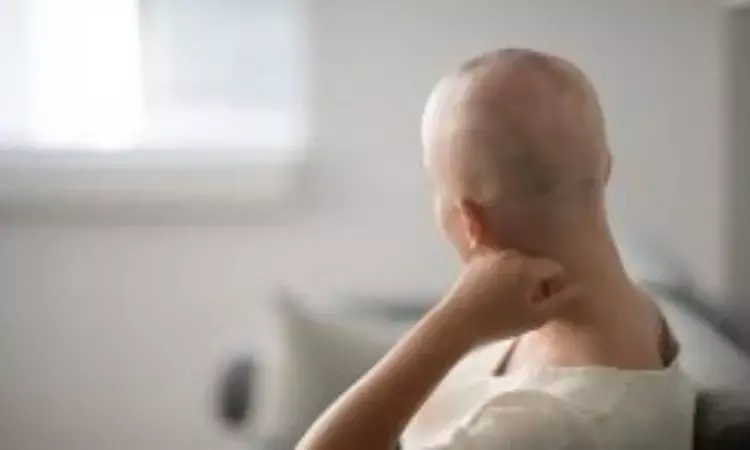- Home
- Medical news & Guidelines
- Anesthesiology
- Cardiology and CTVS
- Critical Care
- Dentistry
- Dermatology
- Diabetes and Endocrinology
- ENT
- Gastroenterology
- Medicine
- Nephrology
- Neurology
- Obstretics-Gynaecology
- Oncology
- Ophthalmology
- Orthopaedics
- Pediatrics-Neonatology
- Psychiatry
- Pulmonology
- Radiology
- Surgery
- Urology
- Laboratory Medicine
- Diet
- Nursing
- Paramedical
- Physiotherapy
- Health news
- Fact Check
- Bone Health Fact Check
- Brain Health Fact Check
- Cancer Related Fact Check
- Child Care Fact Check
- Dental and oral health fact check
- Diabetes and metabolic health fact check
- Diet and Nutrition Fact Check
- Eye and ENT Care Fact Check
- Fitness fact check
- Gut health fact check
- Heart health fact check
- Kidney health fact check
- Medical education fact check
- Men's health fact check
- Respiratory fact check
- Skin and hair care fact check
- Vaccine and Immunization fact check
- Women's health fact check
- AYUSH
- State News
- Andaman and Nicobar Islands
- Andhra Pradesh
- Arunachal Pradesh
- Assam
- Bihar
- Chandigarh
- Chattisgarh
- Dadra and Nagar Haveli
- Daman and Diu
- Delhi
- Goa
- Gujarat
- Haryana
- Himachal Pradesh
- Jammu & Kashmir
- Jharkhand
- Karnataka
- Kerala
- Ladakh
- Lakshadweep
- Madhya Pradesh
- Maharashtra
- Manipur
- Meghalaya
- Mizoram
- Nagaland
- Odisha
- Puducherry
- Punjab
- Rajasthan
- Sikkim
- Tamil Nadu
- Telangana
- Tripura
- Uttar Pradesh
- Uttrakhand
- West Bengal
- Medical Education
- Industry
Taxane-based chemotherapy in Asian breast cancer patients tied to skin changes, hair loss: Study

South Korea: A recent study published in The Journal of Dermatology evaluated the effects of treatment regimens in Asian breast cancer (BC) patients.
The researchers revealed significantly increased odds of experiencing elevated hair loss, a higher melanin index & increased wrinkles six months post-surgery in those in the adjuvant treatment group, particularly those undergoing taxane-based chemotherapy. In the neoadjuvant treatment group, the researchers observed a reversal of hair loss in most patients after the surgery.
With the increasing number of young breast cancer patients worldwide, concerns about skin change and hair loss persist among cancer survivors.
Taxanes (paclitaxel and docetaxel) are among the most commonly prescribed anticancer drugs approved for the treatment of metastatic or locally advanced breast, gastric, non-small cell lung, prostate, head and neck, and ovarian cancers, as well as in the adjuvant setting for operable node-positive breast cancers.
The true incidence of dermatological adverse events (AEs) in patients receiving taxanes is unknown and has not been prospectively analysed, but they represent one of the major AEs associated with these agents. With an increase in the occurrence of cutaneous adverse events during treatment with novel targeted and immunological therapies when used along with taxanes, it is imperative to thoroughly understand the reactions attributable to this class. Moreover, identification and management of dermatological AEs is critical for maintaining the quality of life in cancer patients and for minimizing dose modifications of their antineoplastic regimen.
Against the above background, Joonho Shim, Sungkyunkwan University School of Medicine, Seoul, Republic of Korea, and colleagues aimed to evaluate the skin changes and hair loss in Asian breast cancer patients and to compare them according to the treatment regimens.
Three hundred and twenty-two patients scheduled to undergo breast cancer surgery were enrolled. Skin changes and hair loss were assessed at the following two-time points: one day before surgery and six months after surgery.
Patients who had received systemic anticancer treatment prior to surgery were assigned to the neoadjuvant treatment group, while patients who were scheduled to receive systemic anticancer treatment were assigned to the adjuvant treatment group.
The key findings of the study were as follows:
- In the adjuvant treatment group, patients with taxane-based chemotherapy had significantly higher odds of increased hair loss, an increased volume of wrinkles, and a higher melanin index.
- In the neoadjuvant treatment group, hair loss was reversed in most patients at six months after surgery.
"Clinicians should inform breast cancer patients about the potential for hair loss and skin changes and provide supportive care to mitigate the effects on the patient’s quality of life," the researchers concluded.
Reference:
Shim, J., Noh, H., Kim, H., Joo, B., Lee, J., Oh, S. J., Lee, J. H., Lee, D., Lee, S. K., & Park, J. Assessment of hair loss and skin changes during treatment in Asian breast cancer patients: A prospective cohort study. The Journal of Dermatology. https://doi.org/10.1111/1346-8138.17092
Dr Kamal Kant Kohli-MBBS, DTCD- a chest specialist with more than 30 years of practice and a flair for writing clinical articles, Dr Kamal Kant Kohli joined Medical Dialogues as a Chief Editor of Medical News. Besides writing articles, as an editor, he proofreads and verifies all the medical content published on Medical Dialogues including those coming from journals, studies,medical conferences,guidelines etc. Email: drkohli@medicaldialogues.in. Contact no. 011-43720751


